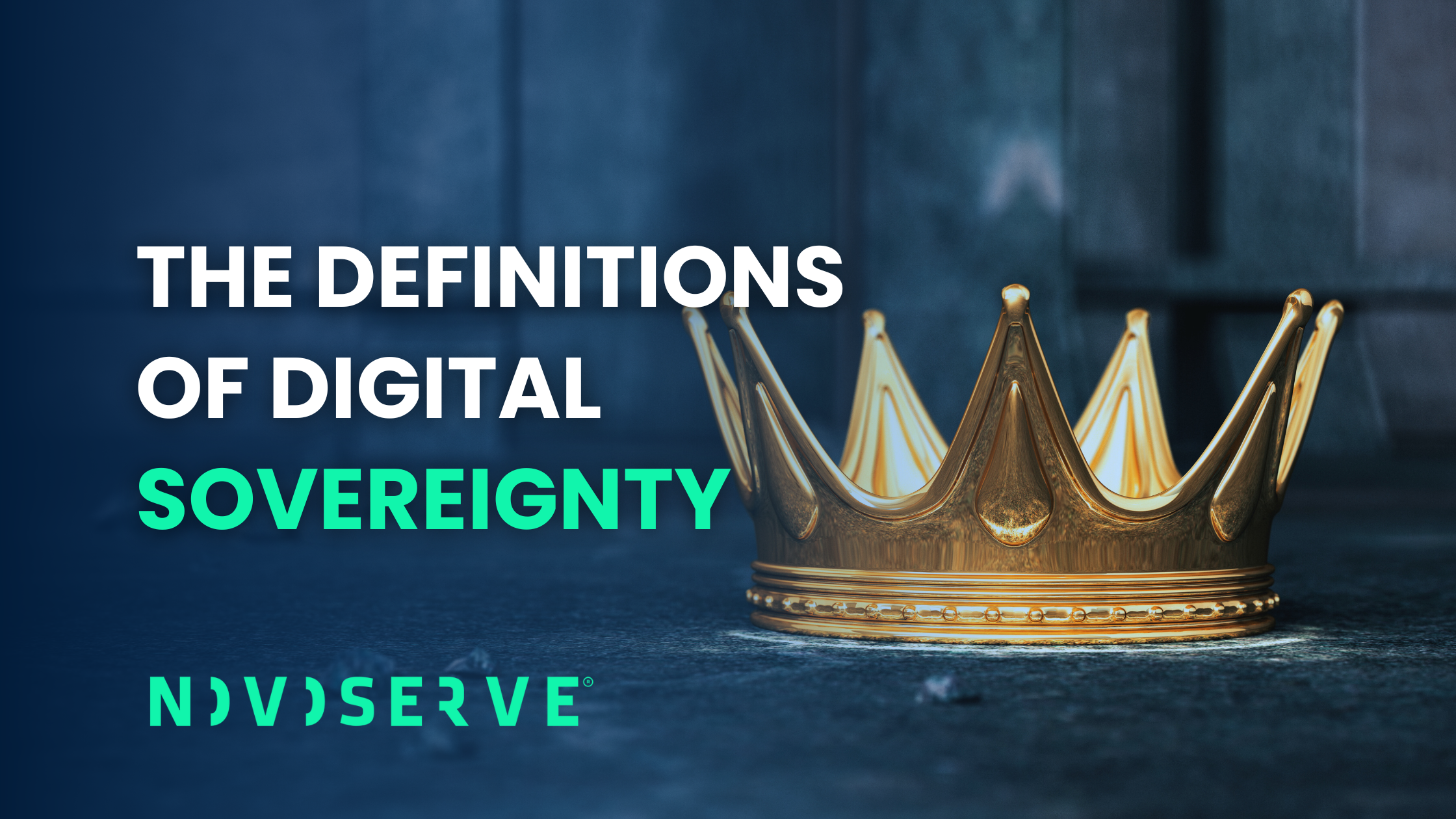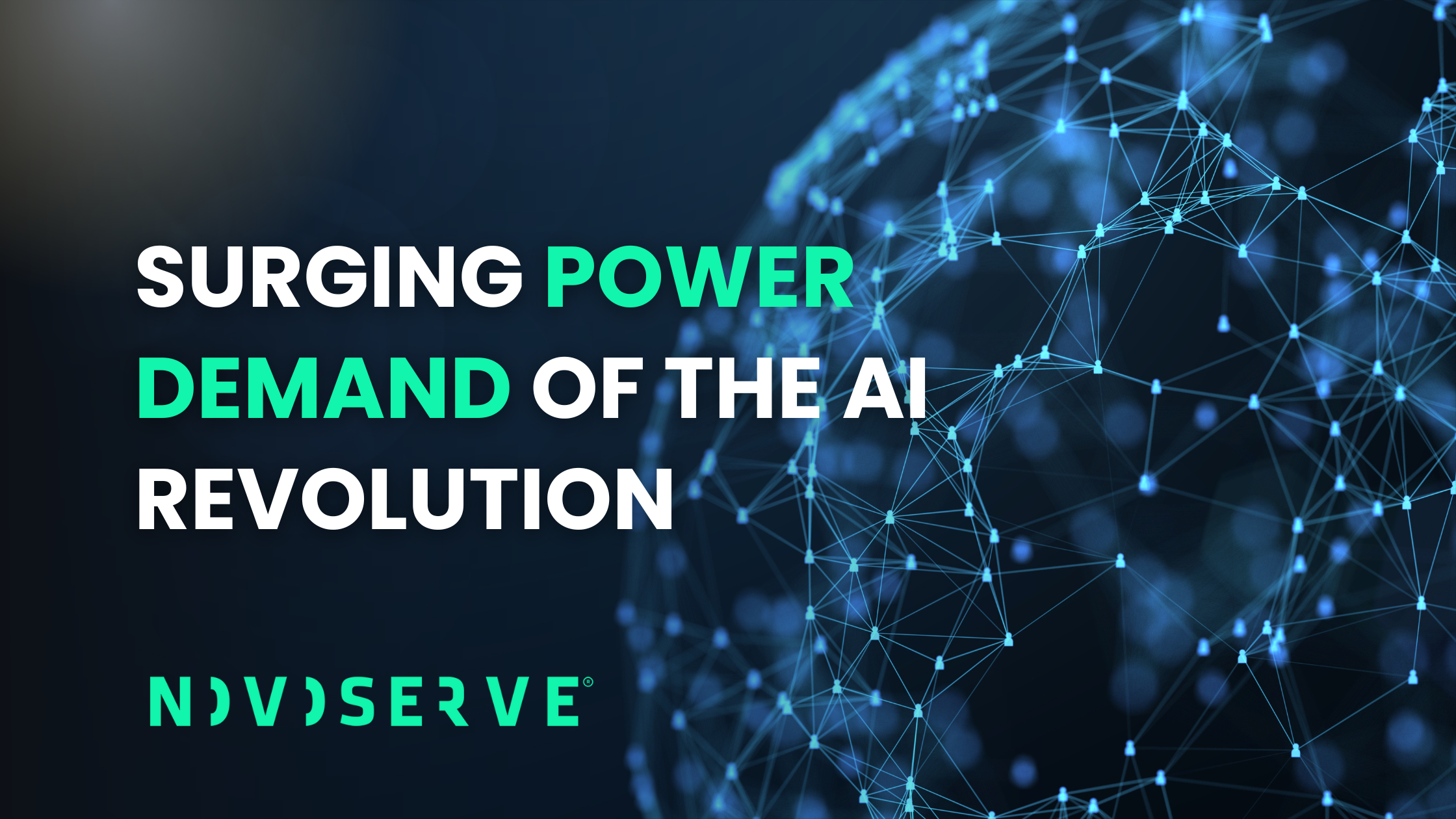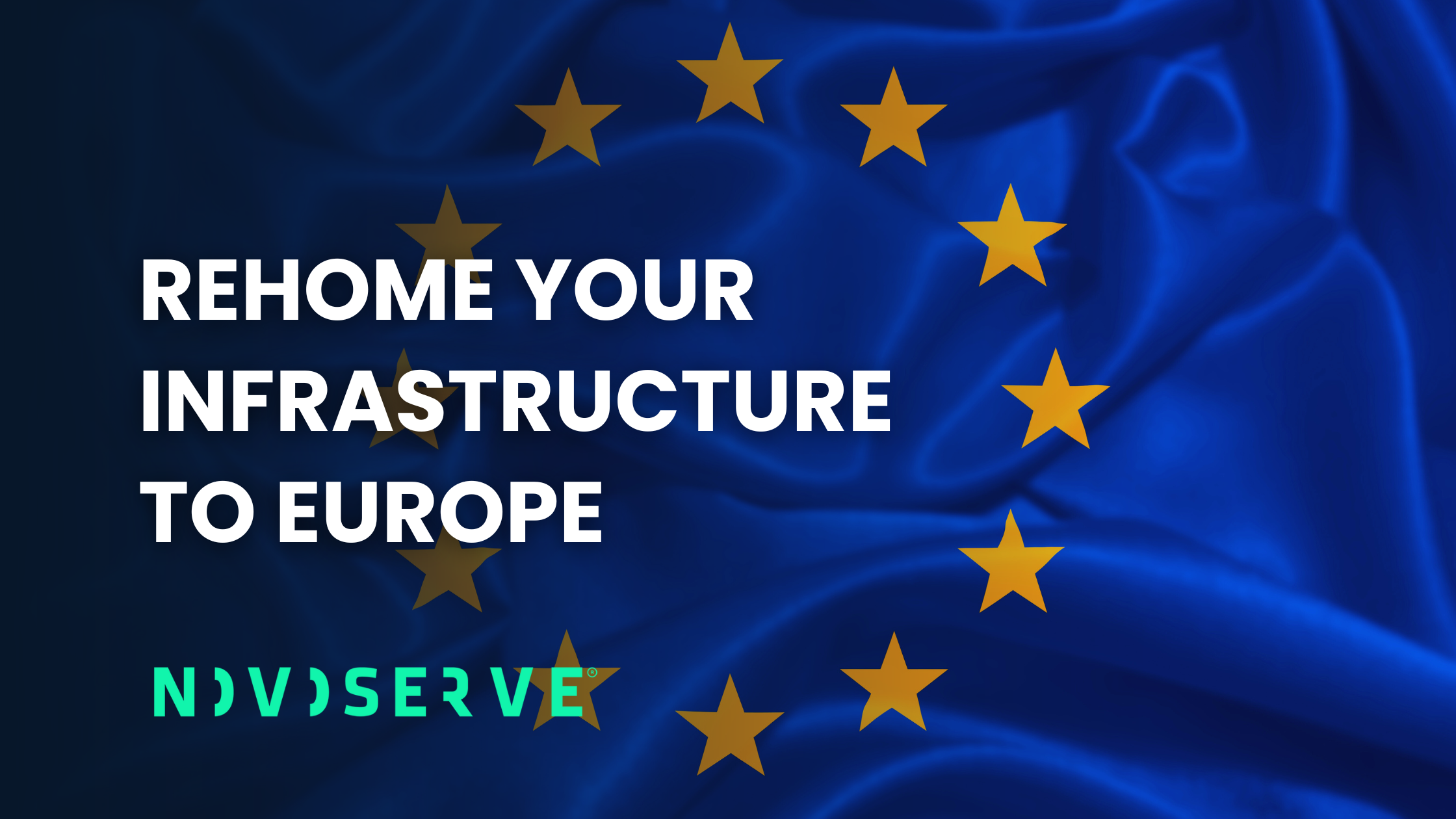Although no longer a new term, "digital sovereignty" is gaining serious traction in Europe. But what is digital sovereignty, really? Why is it such a hot topic in political, business, and tech circles across Europe—and why should organizations and citizens care?
From data control and cloud infrastructure to AI and cybersecurity, digital sovereignty has become a key pillar in the global conversation about independence, innovation, and security. This article dives into the different definitions of digital sovereignty, explores why it’s become a strategic priority (especially in the EU), and outlines how companies like NovoServe are contributing to a more sovereign digital future.
Different Definitions on Digital Sovereignty
At its core, digital sovereignty refers to the ability of a state, organization, or individual to independently control their digital infrastructure, data, and technology. It's not just about where data is stored—it’s about who has access to it, who governs it, and who sets the rules.
There are a few overlapping but distinct definitions:
- Data sovereignty: the legal and practical control over data—often linked to where the data is physically stored.
- Cloud sovereignty: using infrastructure that’s compliant with local or regional laws, free from foreign jurisdiction.
- Technological sovereignty: the ability to build, manage, and secure your own digital infrastructure without relying on foreign powers or monopolies.
In simpler terms, it’s about digital self-determination—the right and capacity to decide how technology is used within your own borders or business.
Why Is Digital Sovereignty Gaining Attention Now?
Big Tech Dependence: Europe—and most of the world—is heavily reliant on tech giants like Amazon, Microsoft, and Google for cloud services, infrastructure, and software. In fact, over 90% of the West’s data is hosted by US companies. This raises concerns over compliance with EU laws, as well as vulnerability to extraterritorial laws like the U.S. CLOUD Act, which gives American authorities access to data—even if it's stored in Europe.
Cybersecurity Threats: Recent high-profile cyberattacks, from ransomware to state-sponsored hacks, have made it clear: digital infrastructure is critical infrastructure. Without sovereignty, governments and companies risk losing control in times of crisis.
Geopolitical Shifts: Tensions between the US, China, and other global powers have made digital autonomy even more urgent. For example, as US politics become more unpredictable, European leaders are increasingly vocal about reducing reliance on non-EU platforms and technologies.
Regulation & Accountability: The European Union has taken a leading role in defining digital standards that reflect democratic values and consumer protection. GDPR, the Digital Services Act (DSA), and the AI Act all aim to reinforce Europe’s digital independence—and its ability to shape its own tech future.
The EU’s Push for Digital Sovereignty
Europe, in particular, is taking the idea of digital sovereignty seriously. For the European Union, this means creating a digital environment that respects its laws, values, and democratic principles—while also strengthening its own capacity to innovate.
Instead of building walls around the internet, the EU is focusing on smart regulation, trusted infrastructure, and targeted investment. That includes rules like the General Data Protection Regulation (GDPR), which has become the global gold standard for privacy, as well as newer initiatives like the Digital Services Act and the AI Act. These laws aim to ensure that digital services are safe, fair, and transparent—whether they’re built in Europe or imported from abroad.
Europe is also investing in infrastructure to reduce reliance on non-EU providers. Initiatives like GAIA-X aim to create a federated European cloud ecosystem, where companies can build and host services in full compliance with EU laws. Other projects, like DNS4EU, offer secure, locally governed alternatives to global DNS resolvers. It’s not about shutting others out—it’s about building a digital economy that reflects European values and priorities.
NovoServe Supports Digital Sovereignty
At NovoServe, we’ve long believed in the importance of control, transparency, and performance—values that align perfectly with the growing demand for digital sovereignty. As a dedicated bare metal hosting provider with data centers in the Netherlands, Denmark, and the United States, we offer clients full access and control over their infrastructure. There are no shared environments, no hidden layers, and no lock-in to external software platforms.
But our commitment goes beyond infrastructure. NovoServe is also proud to support the NL Gigafactory initiative, which was recently submitted to the European Commission. This is a bold project that aims to build high-performance, EU-based infrastructure for artificial intelligence workloads. By creating a European alternative to the China- and US-dominated AI sectors, the initiative seeks to help Europe take the lead in AI development—without sacrificing autonomy or data sovereignty.
We’re not just talking about digital sovereignty—we’re helping shaping the European AI landscape.
The Global Movement Toward Sovereignty
While Europe may be at the forefront of the conversation, digital sovereignty is a global issue. In countries like China, data sovereignty is strictly enforced through comprehensive laws that limit the movement of data beyond national borders. India is also taking steps to strengthen its digital independence, including developing local payment systems and cloud infrastructure.
The US, home to many of the world’s tech giants, is rethinking its approach. New regulations around privacy, antitrust, and digital competition are gaining traction, with lawmakers seeking to rein in the immense power of big tech.
Across Africa and Latin America, nations are building their own data centers, promoting local startups, and exploring ways to regulate cross-border data flows. Each country may have its own reasons and approach, but the trend is unmistakable: control over digital infrastructure is becoming as critical as control over energy or natural resources.
Why Digital Sovereignty Affects Us All
You don’t have to be a policymaker or tech CEO to care about digital sovereignty. It touches all of us. When a government can’t guarantee the privacy or availability of public services, citizens suffer. When companies rely on cloud services they can’t fully audit or control, they expose themselves to compliance risks. And when regions lose their ability to compete in the digital economy, innovation and prosperity stall.
Digital sovereignty is about freedom—freedom to choose which tools you use, where your data lives, and who gets to set the rules. And in a world where digital systems shape everything from healthcare and education to defense and business, that freedom matters more than ever.
The trend of digital sovereignty creates a fundamental shift in how countries, companies, and people think about technology and power. Europe’s push toward digital sovereignty is about ensuring a digital future that it can shape – not just follow. We are produ to help built that future by offering trusted and transparent infrastructure – designed to meet the needs of those who value digital control.





